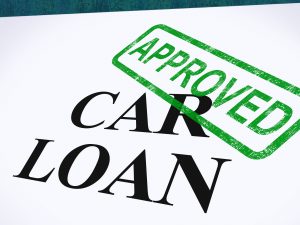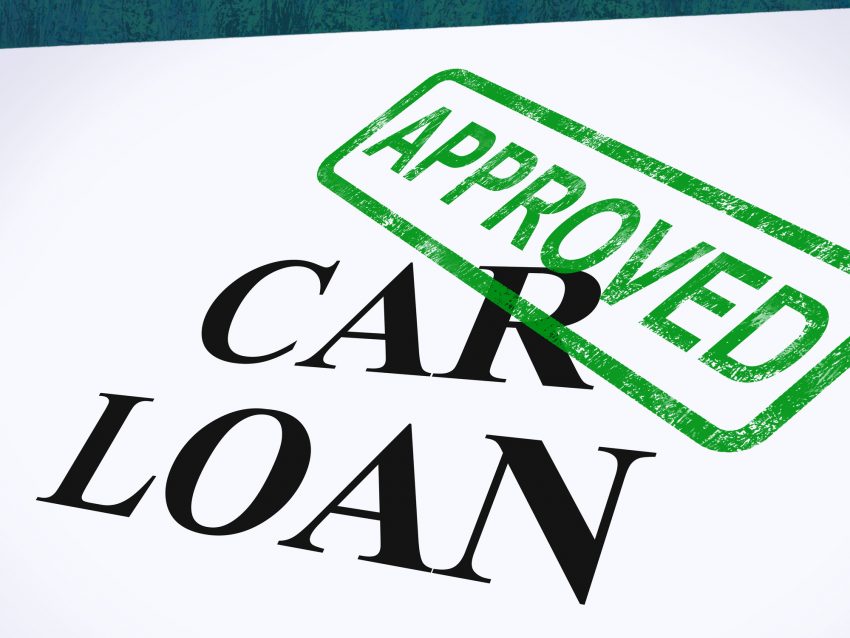Data shows that in 2021, the average car cost more than $42,000 and came with an average payment of $563 a month. But, of course, this doesn’t include expenses like gas, car insurance, and maintenance.
While having a car is a significant expense for many, only second to housing, is it possible to have multiple car loans? The answer is yes, and we’ll explain everything you need to know about it.
So let’s get started with how financing two car loans works.

Contents
Getting Approved for Multiple Car Loans
As with any loan application, you need to meet specific criteria for the lender to approve your loan. You’ll need to meet stringent specifications when applying for two loans simultaneously or getting a second loan when you already have one.
The criteria for a second auto loan are often more strict than your first car loan.
Credit History
The first thing your lender will examine is your credit history. Your credit history is the primary source of information lenders use when deciding whether or not to give you a car loan. Credit history includes information such as:
- Credit score
- Repayment history
- Loans on file
- Credit inquiries
- All other public records related to your credit
Good credit is vital to obtaining one car loan, let alone two. A 2021 report from Experian states that the average credit score for a used car loan is 665. For a new car loan, it’s 732.
The credit scoring services company, FICO, rates a credit score of 670-739 as good. If you’re in the fair category (580-699), you may still receive an auto loan but with a higher interest rate. Additionally, you’ll find it challenging to get approved for a second car loan.
If you want a second car loan, it’s best to have a credit score in the very good (740-799) or excellent (800-850) range. Your exact score will vary from lender to lender and state to state.
A fair or good credit score doesn’t automatically disqualify you from receiving a first or second car loan. But, the better your credit score, the more likely you will get approved and have a lower interest rate.
The average auto loan APR can range from 6-17% and highly depends on your credit score.
Why Does APR Matter?
The Annual Percentage Rate (APR) is essential because it determines how much you’ll pay in interest after paying off the loan’s principal balance. Here’s an example to consider.
Alice has a credit score of 585, which is at the low end of fair. Her APR is 15%.
Conversely, Susan has a credit score of 780, putting her in the very good range. Her APR is 7%.
Both want to borrow $20,000 for 72 months. At the end of the loan, Alice will have paid nearly $6,000 more than Susan because of her APR. A lower APR will save you thousands.
Proof of Income
The second item your lender will evaluate is your proof of income. Lenders need to see that you have a stable income and can repay the loan according to the terms. They want to ensure you won’t default on your loans.
Usually, lenders want to see that you’ve worked for the same employer for at least two years or have another steady source of income to afford the payments.
Applying for two auto loans will require you to have a higher income because you’ll need to afford two monthly payments, not one.
If your income is not stable or as high as it needs to be to secure the second loan, consider applying with a co-applicant, such as your spouse. This will boost your income and credit score.
However, don’t forget that the co-applicant will share equal responsibility for the loan, and the terms may require you to include their name on the title.
Not all lenders accept co-applicants, so do your research before choosing a lender.
Debt to Income Ratio
The next thing your lender will consider is your debt to income (DTI) ratio. Lenders don’t always consider your DTI ratio for an auto loan, but they will evaluate it when applying for a second car loan.
Your DTI ratio compares how much you owe each month in debt to how much you earn. It’s the percentage of your gross monthly income (before taxes) that goes towards payments for:
- Rent
- Mortgage
- Credit cards
- Other debt
The allowed DTI ratio will vary from lender to lender, but more than 42% is usually getting into uncertain territory. Anything over 50%, and you will have significant trouble getting approved for a second car loan.
Down Payment
As with any big purchase, you’ll need to make a down payment.
Putting down 20% of the car’s value or more shows you have the financial capacity to handle the loan. It also lowers your loan amount, making it more affordable.
The more you can put down, the more financially responsible you will be to the lender, and it could also lower your interest rate. This is true whether you’re financing your first or second auto loan.
Car Value
The type of car you want to finance will impact whether you get a second loan. For instance, trying to finance a Porsche on a $50,000 annual salary and a DTI ratio of 40% isn’t going to work.
It means taking out a smaller loan if you finance a vehicle of lesser value or opt for a used car. This will improve your chances of getting approved for a second loan.
It can also help lower your car insurance premiums.
Pre-Approval Options
If you can get pre-approved for a second auto loan, do it. The process will require additional work, but you will have more leverage when car shopping.
Pre-approval will demonstrate that you understand your financing options, allowing you to negotiate the price.
Who May Need a Second Auto Loan?
You may be wondering why you would even need multiple car loans. But it’s not as far-fetched as it sounds.
If you and your spouse need a new car simultaneously, you’ll find yourselves with two loans. While you may each pay your loan separately, it’s also possible that one person will take on both loans, depending on your financial situation.
Say you want to get your soon-to-be 16-year-old a vehicle for their birthday; you may end up with two loans if you’re currently paying off a loan on your car.
Cars are still the primary mode of transportation in the U.S., with nearly half of Americans having no access to public transportation. So, it’s not uncommon to find yourself in a situation where you must buy two vehicles at once or within a short time.
Is It a Good Idea to Get a Second Car Loan?
The answer to this varies. Let’s look at some examples to see whether it’s a sound idea.
It is a better choice if you can afford to buy one of the two cars outright and finance the second car. This way, you’ll only be paying interest on one loan, saving you money.
Furthermore, you will only have one monthly loan payment, not two, lowering your DTI ratio and financial burden. You may also negotiate below the sticker price and get a lower interest rate for the second car if you offer cash for the first.
If you can’t afford to buy one car with cash, think about how much you can put down on both vehicles. Putting down a small payment on each car will increase your burden. If you’re struggling to come up with a minimum of 20% down for each vehicle, reconsider getting a second car loan.
When you take a second car loan, your DTI ratio increases. This won’t have an immediate impact on you. But if you want to take out another loan in the future, whether a mortgage, personal loan, etc., this will impact the terms of that loan, especially if your DTI ratio goes above 50%.
In the end, if you have excellent credit, limited debt, and a substantial income, a second auto loan will not significantly impact you.
Meet your financial advisor before taking on any debt to see what you can realistically afford.
Can You Finance Two Cars With One Loan?
Although it’s possible, it’s not common. You’ll need excellent credit, negotiation skills, and a flexible lender.
The value of a car secures an auto loan. If you default, the lender will repossess the vehicle. This is complicated to do with a two-car, one-loan scenario.
It’s easier to take out two auto loans. However, if you don’t want to make two monthly payments, consider taking out a personal loan to finance both cars instead.
Can You Finance a Car With Two Loans?
Although it’s possible, experts don’t recommend it. Having two loans for one car demonstrates that you probably cannot afford the vehicle. And it increases your DTI ratio. This could financially hurt you in the future as it.
Of course, it’s also more challenging to make two monthly payments than one.
If you need two loans to finance a car, consider buying a less expensive car or saving up more money for the down payment. This will reduce your loan amount and make it more affordable.
Next Step: Secure an Auto Loan
Even though it’s possible to have multiple car loans, it’s a financial decision you want to make with care and precision. Taking on so much debt can be disastrous, especially if you can’t really afford it.
Looking for more financial advice like this? Don’t miss the other articles in the Finance section. We add more content daily for you to explore!
Learn More
How to Buy a Car Under your Business





